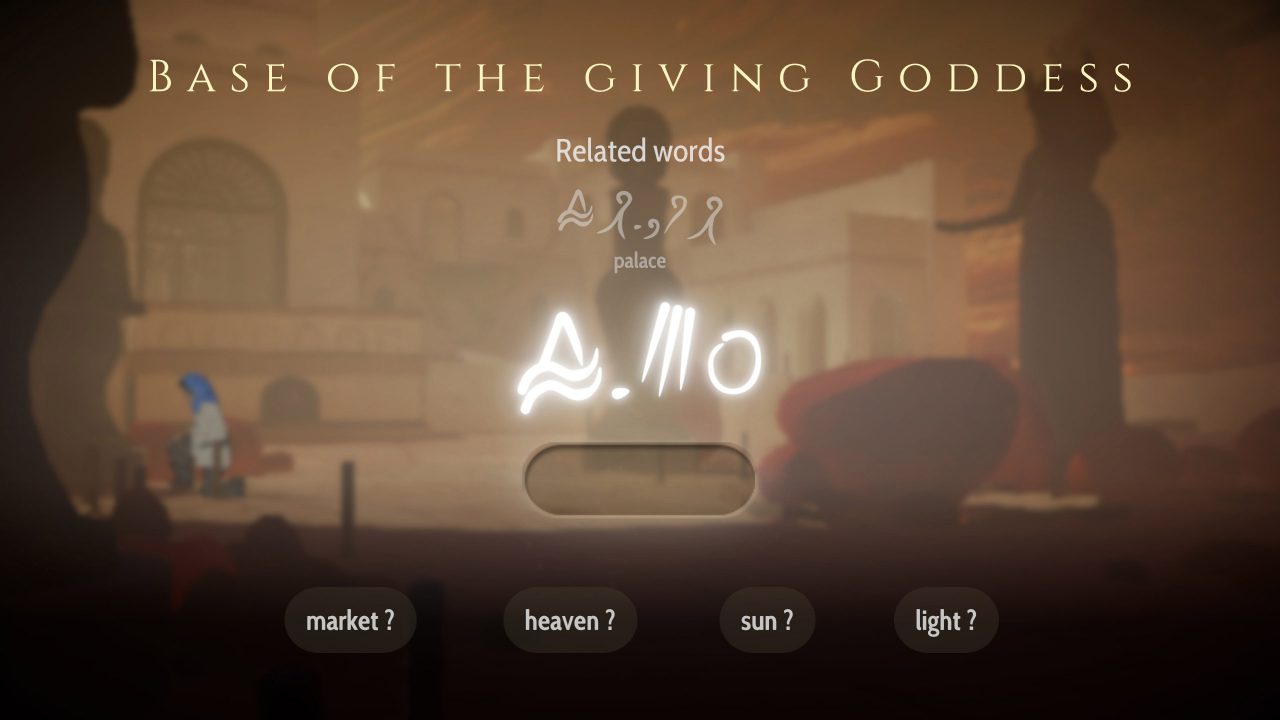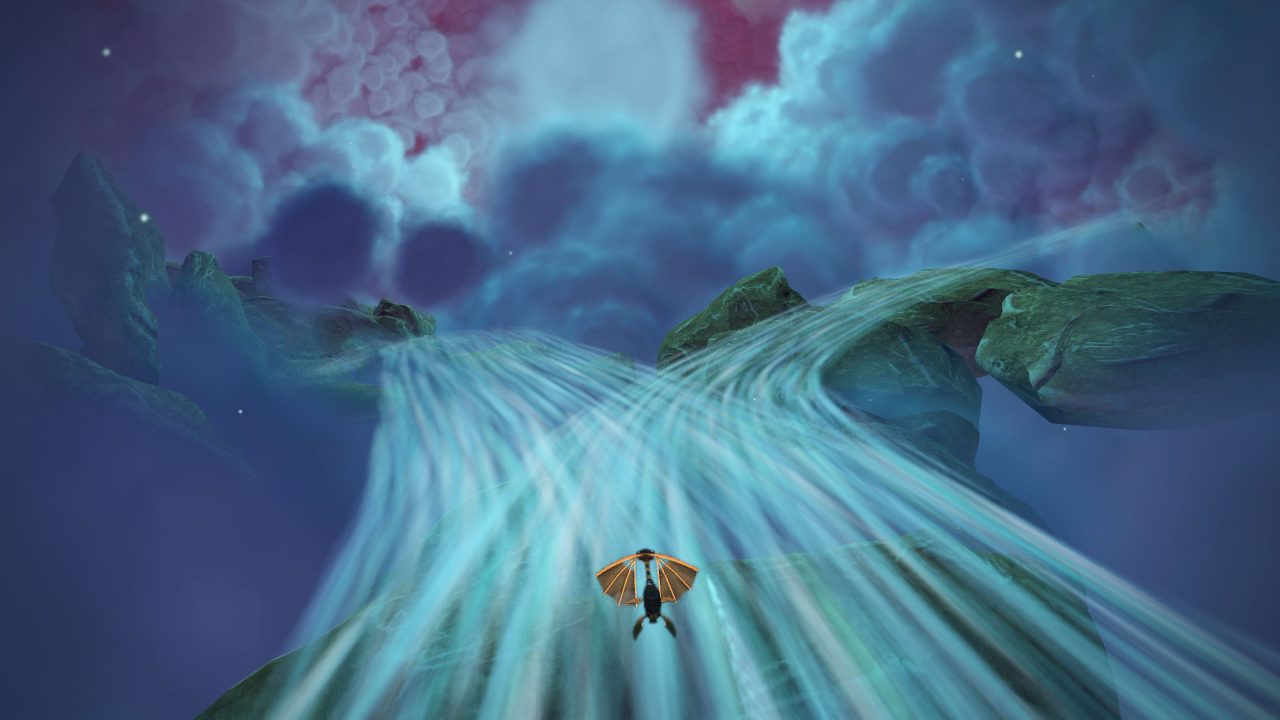Every moment we come face to face with decisions. Some are minor and don’t seem to have any notable consequence, while others are more blatantly impactful. But Heaven’s Vault makes sure you know that each decision we make affects us and the world around us in some way, both in the short- and long-term.
Aliya Elasra is an archaeologist living in the Nebula, a collection of inhabited moons floating off in space, connected by “rivers” of space debris and water. She is tasked with finding a missing roboticist, which sends her and her newly assigned robot companion, Six, to the far reaches of the Nebula and everywhere in between. Her explorations take her to locations both well-known and previously undiscovered, all filled with clues surrounding the Nebula’s ancient civilizations and “Ancient,” a foregone written language.
Gameplay predominantly revolves around finding carvings of Ancient and deciphering their meaning. Equal parts guesswork and context-driven logic, piecing together the meanings of these messages creates a rewarding loop. A collection of symbols whose meaning you may have merely guessed at before may come back to reveal further background information about certain abandoned sites. This feedback loop exists in decoding Ancient as well as exploration, which exist hand-in-hand as the Nebula’s past is brought to light.

You explore moons both charming and haunting, featuring lovingly detailed 3D environments in which your 2D character resides. This reverse-Bravely Default style has a striking, memorable quality, and you leave behind an afterimage as you move, showing precisely where you’ve come from. While exploring, you’ll come across Ancient scrawled in the most obvious as well as unsuspecting places, driving you to search every nook and cranny. Otherwise, you’ll be conversing with the locals for more leads. When speaking with the Nebula’s inhabitants, almost every dialog option has an irreversible effect. The amount of different dialog branches, combined with the impressive number of unique characters, emphasizes how vast the Nebula truly is.
To get from moon to moon, you’ll need to sail across the rivers in your ship. Sailing is simple enough — mostly steering as the rivers carry you forward — and taking control grants you the opportunity to search for floating ruins that may contain more artifacts with Ancient inscriptions. If you’re visiting a moon you’ve already been to, you can pass control to Six so you don’t have to navigate what may end up being quite a long distance. But that choice comes at the expense of the ability to stop for any floating ruins you may pass.
I found sailing to be the least exciting aspect of the journey, mainly because exploring new moons and deciphering Ancient was so incredibly fun. Finding floating ruins can help add a bit more context to the Nebula’s history or narrow down search locations for the next moon, but it felt a little disconnected from the primary loop of translating and discovering. Each time I landed on a new location and an unexpected settlement came into view, my jaw dropped. When using my translations to uncover what purpose these locations held, I gasped. But when I had to actively find new locations out on the rivers, I couldn’t wait to make contact with the land.

Every so often, you have to make a rather large decision that blatantly impacts the rest of the game going forward. Depending on your own personal connections with the characters involved, some choices may be easier to make than others, but they are all irreversible. Presented like any other decision in the game, it really leaves an impact with just how nonchalantly these scenarios crop up. Even situations that you might think aren’t too important may end up resulting in a permanent change.
The ending in particular plays out differently based on certain choices you’ve made up until that point, while also featuring a major decision of its own. After finishing Heaven’s Vault for the first time, I was admittedly disappointed. But it wasn’t really the ending that disappointed me, but rather the decision I made that led to the ending that unfolded. I certainly wasn’t ready for the choice I was given, but that’s just how some choices are.
It takes less than 10 hours to complete a single run of Heaven’s Vault, so playing it again to uncover more words in Ancient and try out different dialog choices or major game-changing decisions is very feasible. Additionally, New Game+ allows you to keep your confirmed Ancient translations if you so choose. But you’re not really playing the exact same game again. Although history repeats itself, there are always different choices leading up to history’s major events causing them to be different, either in subtle or blatant ways. Each time you replay Heaven’s Vault, your knowledge of the past will help guide your decisions towards your own more ideal ending, just as history helps us to do in our lives each day.


